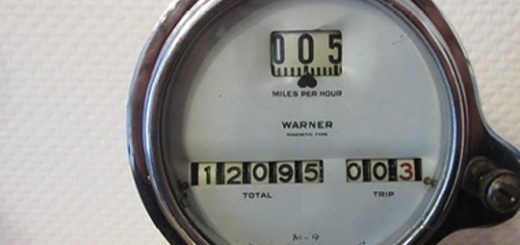Debunking myths about plastic bearings in heavy-duty applications
Article by Michael Moalli, edited by Jared Worth
There are many misconceptions surrounding plastic bearings, particularly when discussing heavy-duty applications. While plastics are often seen as an inferior material compared to metal in heavy-duty applications, they actually provide numerous benefits that metal components do not. This blog will debunk some of the myths about plastic bearings, and demonstrate why they’re the ideal choice for heavy-duty bearings.
Myth 1: Plastic bearings cannot handle the loads in my application
Plastic bearings have come a long way over the years, and only continue to get stronger and stronger. iglide® composite plastic bearing materials, for example, can handle a maximum surface pressure of 135MPa (19,500 PSI) for injection-molded bearings and 200MPa (29,000 PSI) for composite fiber-reinforced bearings.
Myth 2: Plastic bearings are not large enough for my application
Heavy-duty applications often require particularly large bearings. Many manufacturers and engineers assume that the sizes required for heavy-duty applications are simply too large for plastic bearings to achieve; however, this is not the case. Injection-molded composite plastic bearings are offered by igus with internal diameters as large as 6 inches, and composite fiber-reinforced bearings with internal diameters up to 200mm. Composite fiber-reinforced bearings do offer the flexibility to go much larger, depending on the needs of your application.
Myth 3: Plastic bearings are too expensive
Many engineers will avoid plastic or fiber-reinforced components whenever possible due to the misconception that they’re simply too expensive when compared to metal components. While there are cases where plastic components will cost more than metal up front, in the long run they prove to be more cost-effective due to self-lubricating properties that eliminate the need for external lubricants.

Self-lubricating plastics are embedded with solid lubricants, which disburse (or distribute) during normal operation and keep the bearing adequately lubricated without the need for expensive and time-consuming labor. This drastically reduces the lifetime cost of plastic bearings compared to metal, which need to be manually lubricated on a regular basis. Not only is this more expensive, but can cause bearing failure if the lubrication isn’t performed properly or often enough.
Read more: The true cost of bearing lubrication
Between the cost of labor, machine downtime, the lubricant itself, and possible shaft or bearing replacement, metal bearings will end up costing significantly more than plastic bearings over the course of the bearing’s lifetime.
Myth 4: Greasing metal bearings is harmless
Greasing metal bearings has a major negative impact on the environment. Of all the lubricants sold worldwide, 50% ends up in the environment. The industrial lubricant market is already worth tens of billions of dollars, with millions of tons of lubricant used each year. All it takes is one liter of lubricant in the environment to poison 1,000,000 liters of drinking water, demonstrating just how hazardous and damaging lubricants are to the environment.

Infographic: Bearing Lubrication Facts
Myth 5: Plastic bearings cannot handle extreme environmental conditions
In part due to the lack of lubricating grease, plastic bearings have actually been proven effective in several harsh environmental conditions, including:
- Outdoor applications
- Uneven terrain
- Shock & edge loads
- Dirt & dust
- Moisture
- Chemicals
- Extreme temperatures
These conditions are all found frequently in heavy-duty applications, making plastic and fiber-reinforced bearings an excellent solution for even the harshest applications.
Myth 6: Plastic bearings are unproven in heavy-duty applications
At igus, we have a 41,000 square foot test lab — the largest of its kind in the industry — where we can test all sorts of loading conditions, bearing materials, and shaft materials for various wear and friction properties. We can even perform custom tests using your exact application specifications. We’ve recently put additional emphasis on testing our heavy-duty materials, with more and more data being gathered each week.
Contact an industry expert at 1-800-965-2496 or visit our website at www.igus.ca.



